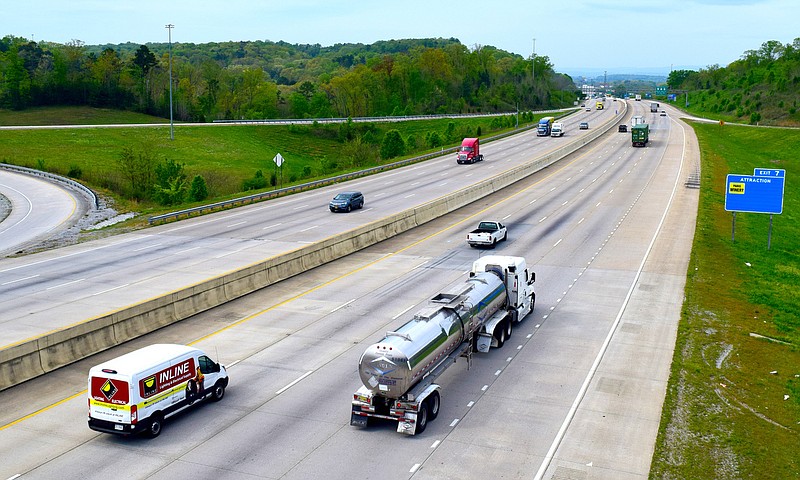Tennesseans appear to be heeding the call to stay at home and off the road to help limit the spread of the coronavirus.
With Gov. Bill Lee ordering people to stay at home except for essential work and shopping last week, traffic on state highways has dropped to less than half the levels seen at the same time a year ago.
While traffic on Tennessee freeways had been growing 2-3% annually in recent years, the volume of cars and trucks on the road plunged over the weekend by anywhere from 36% to 59% from 2019 levels in the state's biggest cities.
"We've never seen reductions like this before," said Brad Freeze, the director of traffic operations for the Tennessee Department of Transportation in Nashville. "In the past several years, traffic had been growing consistently year over year. But we're seeing major reductions now on a continuous basis like we've never had before."
The drop in traffic has been fairly constant over the past month as the coronavirus has spread and governments have increasingly called upon people to stay home and limit traveling to help reduce the spread of the virus.
Traffic began to move slightly higher in some areas at the end of last month, which helped lead the governor to issue Thursday a stay-at-home order.
CHATTANOOGANS STAY HOME
At the same time, Chattanooga Mayor Andy Berke issued a shelter-at-home order in the city last week.
In response to his and other orders, interstate highway traffic in Chattanooga was down 58% from levels logged during the same weekend last year.
Sunday saw the biggest drop across the state, with Nashville interstate traffic down 59%, Chattanooga down 58% and Knoxville down 57%. Memphis was down 36% from a comparable day last year.
Most of the drop came from passenger cars as schools, retail stores, parks, churches and many businesses remain closed, Freeze said.
"There has been a slight decline in freight traffic moving through the state, but most of this decline reflects the fact that there are fewer cars on the road and people are staying at home and driving less," he said.
Berke tweeted Monday that he was pleased with Chattanooga's response during the first weekend of his order closing down most non-essential businesses, parks and playgrounds across the city.
"I appreciate everyone who observed our shelter-in-place order this past weekend - your good judgment now makes a difference and will save lives," he said.
Even the state's transportation department, which is funded by gas taxes paid by motorists, is discouraging motorists from traveling. TDOT alerts on signs over state and federal highways in Tennessee encourage motorists to "Limit travel to stop the spread of the coronavirus."
TDOT has more than 900 radar sites on interstate highways across the state to monitor traffic flows and tell motorists how long it will take to travel particular distances. The data collected from such sites provides information on the number and speed of vehicles on interstate highways every 30 seconds.
CLEANER AIR
The falloff in vehicular traffic and the suspension of production at Volkswagen, Shaw Industries and other factories is also limiting air emissions and improving air quality, experts predict.
"Most of us are staying home and that reduces the amount of ozone and other emissions going into the atmosphere, which means our air is cleaner," said Bob Colby, executive director of the Chattanooga/Hamilton County Air Pollution Control Bureau. "There's really never been anything quite like this for this long of a period in the 40 years that I have been with the bureau."
Local figures on the air quality effects from the reduced traffic are not immediately available, Colby said. But mobile sources of air pollution from cars, trucks and buses contribute to nearly three fourths of the air pollution in Hamilton County, he said.
In China, the world's largest emitter of greenhouse gases, a study published by the Centre for Research on Energy and Clean Air for the Carbon Brief reported that carbon dioxide emissions declined by a quarter in mid-February when China shut down most of its industries to control the coronavirus.
Contact Dave Flessner at dflessner@timesfreepress.com or 423-757-6340.
